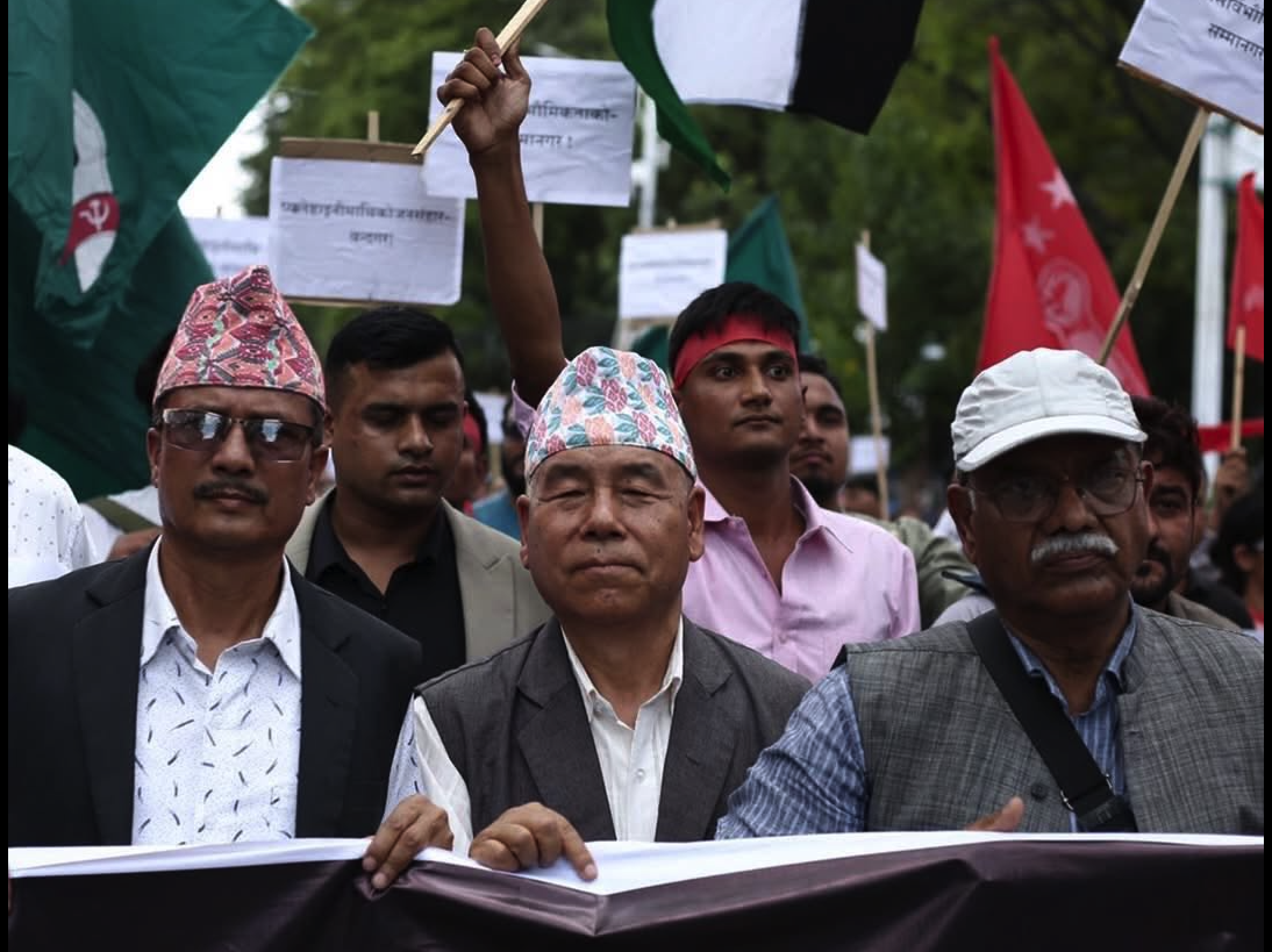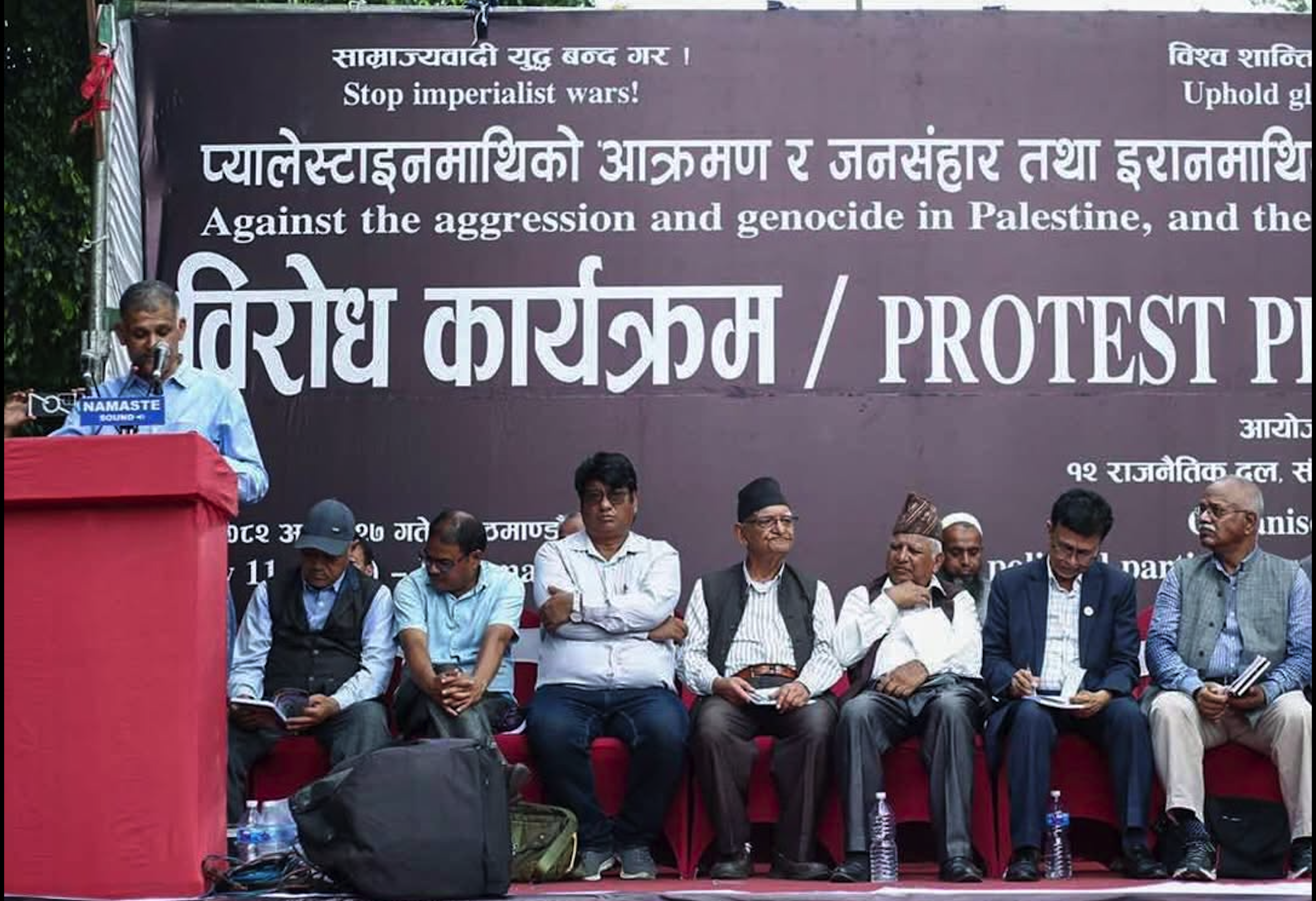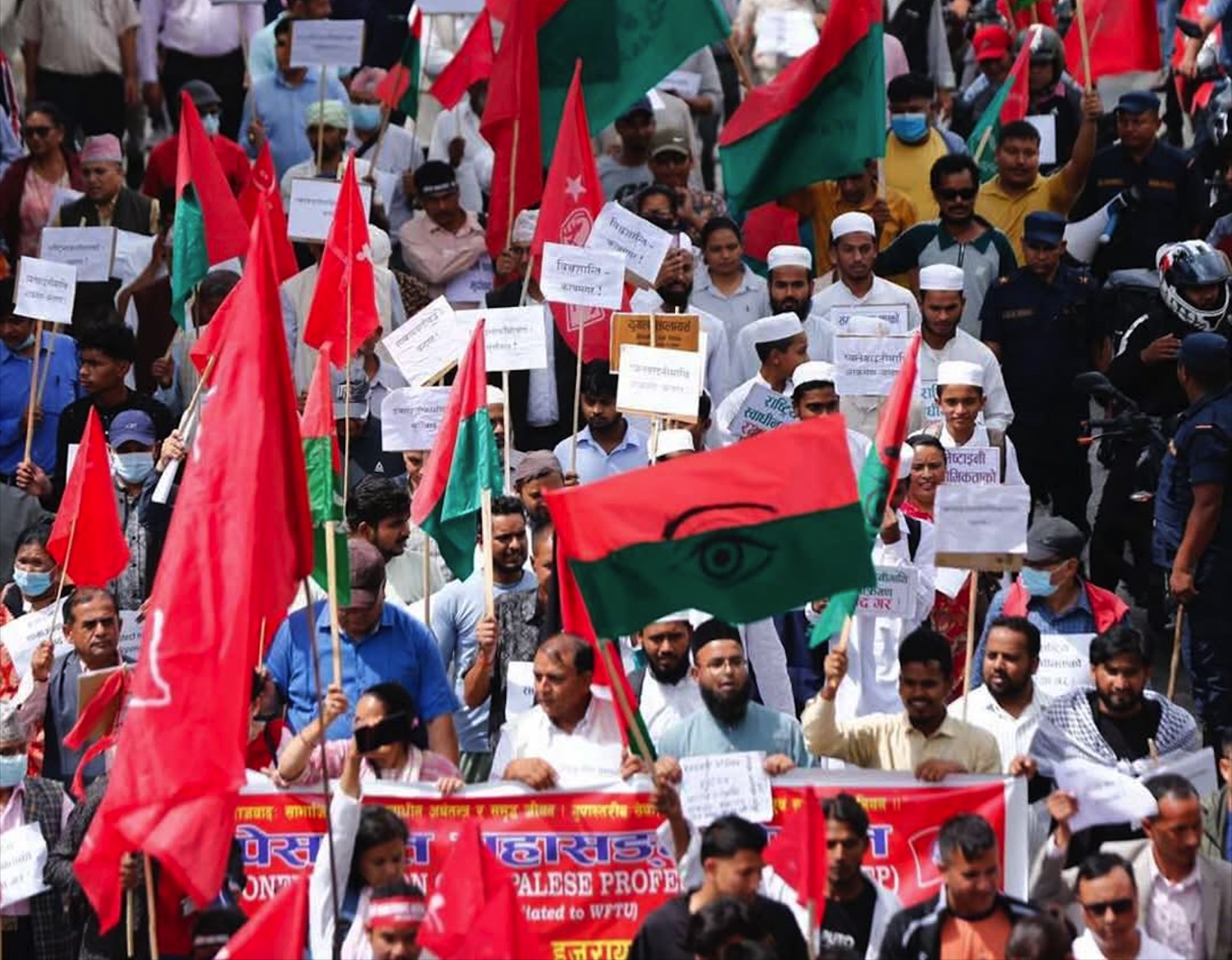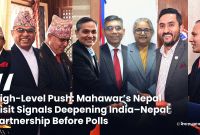Nepal’s Communists Bow to Iran’s Empire: Chitra Bahadur, Dev Gurung Back Expansionist Theocracy

The recent surge of pro-Iran rallies led by Nepal’s Maoist factions has shocked observers, igniting fierce public debate and drawing attention to a dangerous ideological entanglement. In Kathmandu, leaders from the Communist Party of Nepal (Maoist Centre) and eleven smaller leftist parties gathered under the banner of “resistance against imperialism” and “solidarity with Palestine.” Yet beneath the surface, their slogans echo the deeper and far more troubling ambitions of Iran’s 1979 Islamic Revolution: the global export of an Islamic theocratic order, one grounded in expansionism (बिस्तारबाद), imperialist ambition (साम्राज्यबाद), authoritarianism (अधिनायकबाद), and extremism (अतिवाद).
Iran’s revolutionary doctrine, forged by Ayatollah Khomeini, is explicit in its aim. It does not end at Tehran’s borders, nor is it limited to the defense of Shi’a communities. It is a call to spread religious rule as a universal political system — first across Muslim-majority countries, and eventually across the world. With its Guardianship of the Islamic Jurist (Wilāyat al-Faqīh) model, Iran’s system is inherently expansionist, viewing secular governance as illegitimate and positioning Allah as the only rightful sovereign. This is not mere theology; it is active foreign policy, implemented through militias, proxy wars, and transnational networks, including Hamas and Hezbollah.

The sight of Nepali communist leaders, from the Maoist Centre to fringe Marxist-Leninist groups, standing on Kathmandu streets and raising slogans aligned with Iran’s ambitions has left many citizens uneasy. Among them were prominent figures like Dev Gurung and Lilamani Pokhrel, leaders who hold sway within the Maoist movement but have shown no willingness to confront the dangerous ideological currents flowing through these protests. Even more striking was the presence of veteran communist leader Chitra Bahadur KC, known for his strong anti-imperialist rhetoric, who appeared to overlook the grim irony of supporting a foreign theocracy committed to crushing democracy and exporting religious authoritarianism.
The protests did not emerge in a vacuum. As former Nepal government secretary Bhim Upadhayay sharply wrote in a widely shared Facebook post, “In Kathmandu today, Maoists and 12 communist factions rallied, mobilizing a handful of their Muslim supporters, against Israel and America — democratic nations that struck at Iran, the land of terrorists, and the sponsor of global jihad. They showed no shame in siding with a regime responsible for brutally murdering ten innocent Nepali youths and holding Bipin Joshi hostage for 643 days. They do not love Nepal or Nepalis; they polish the boots of extremist, Islamist, fundamentalist forces whose dream is to Islamize the world and establish a caliphate. This outdated, bankrupt leftist politics is decaying in Nepal, trying to sell illusions to a public no longer fooled.” Upadhayay’s scathing words have resonated deeply, amplifying concerns about where these radical solidarities are leading Nepal.
Public reaction has been swift and critical. Many Nepalis have taken to social media and independent media outlets to question whether these communist factions have lost sight of Nepal’s own democratic journey, one painfully won through decades of struggle. Observers have raised an urgent concern: how can leaders who once fought for the overthrow of monarchy and the establishment of popular sovereignty now march in solidarity with a regime that denies women basic rights, suppresses dissent, imprisons journalists, and funds groups that openly murder civilians?
The silence from the top ranks of the Communist Party of Nepal (Maoist Centre) has been deafening. There has been no internal disciplinary action against figures like Dev Gurung or Lilamani Pokhrel, nor any public clarification of the party’s stance. This passivity has fueled accusations that the Maoist movement, once defined by its radical leftist commitment to equality, has decayed into a confused political force—willing to ally with any actor, even a brutal theocratic regime, so long as it fits the anti-West, anti-American script.
What makes this development even more jarring is Nepal’s own vulnerability. The country grapples with the legacy of a decade-long civil war, fragile democratic institutions, and the heavy outmigration of its youth to Gulf states — including many who now fear for their safety as tensions escalate between Iran, the U.S., and Israel. Against this backdrop, the spectacle of Nepali communist leaders endorsing an expansionist theocratic power has struck many as an act of profound irresponsibility, if not outright betrayal.

As Nepal positions itself on the world stage, this moment raises pressing questions about the future of its leftist movements. Will they continue to indulge in outdated revolutionary fantasies, blind to the oppressive forces they now align with? Or will Nepal’s political leadership — across all parties — begin to engage more critically with the global currents that shape both solidarity and sovereignty? The road ahead demands sober reflection, not ideological theater, as Nepal navigates its place in an increasingly volatile world.
The silence of the Maoist supreme leader regarding radical elements within his own party raises pressing questions about the party’s true direction. Is this inaction a calculated move to maintain the support of the hardline base, or does it signal an unspoken ideological alignment with the expansionist and authoritarian currents now sweeping Nepal’s left? When leaders who once promised progressive transformation now ignore the rise of intolerance and extremism within their ranks, it casts doubt on their commitment to democracy and pluralism. As the nation waits for clarity, many wonder if this quiet endorsement of radicalism will ultimately lead Nepal down a path of further division and uncertainty.




![From Kathmandu to the World: How Excel Students Are Winning Big [Admission Open]](https://nepalaaja.com/index.php/img/70194/medium/excel-college-info-eng-nep-2342.jpg)
